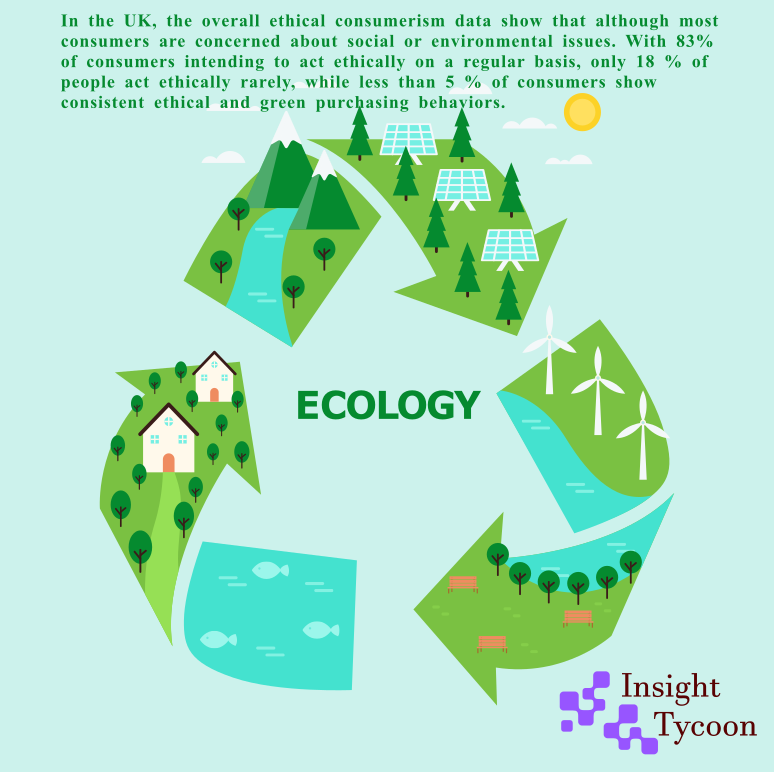Does Misconception OF CSR leads to Company Failure?
According to a survey done by The Nielsen Global on Corporate Social responsibility, it found that more than half of people “are willing to pay more for products and services provided by organizations which are committed to positive social and environmental impact.” Likewise, the two-third of employees would instead work for such a company.

Is running a business that easy? When you are running a business, you should have an idea of how you plan to show sincerity and build trust with your customers and employees. The organizations are no longer determined to do well.
Today, many businesses also make it their mission to do. CSR or generally known as Corporate Social Responsibility, refers to the growing habit, especially for-profit organizations coordinating with various relevant causes and good social programs.Beyond making the world a better place, Social responsibility also benefits companies in their recruiting and consumer marketing efforts.
Here the issue with CSR is somewhat based on complex arguments as it fails to acknowledge, and ultimately, trade-offs must be done between the financial health of the company and overall ethical consequences. CSR strategies may work under certain circumstances, but they are highly exposed to market failures, including factors such as imperfect information, externalities, and even free riders. Most importantly, there is often a broad division between what’s right for a company and what’s good for society as a whole.
Now let’s have a glimpse upon the myth regarding what will lead to the downgrading of such companies.
Misconception #1: The market can result in both long-term social benefits and short-term financial returns.
This assumption mainly goes back to the underlying assumptions of free-market capitalism: People are rational beings motivated to maximize their self-interest. Even though there are some success stories where business incentive providers can be aligned with social objectives for example, Cisco’s Networking Academies, which are dedicated to developing a labor pool for the future but meanwhile, we have seen an abject failure of companies to invest in things that may have a longer-term benefit, such as health and safety systems.
Another company is walnut. The market do like Wal-Mart. Over accusations of poor labor practices, Class-action lawsuits may be brought against Wal-Mart, yet is the world’s largest and most successful company, it is rewarded by investors for driving down its costs and prices.
Similarly, a competitor outlet known as Costco, which offers health insurance and various other benefits to its employees and workers, is being forced by its shareholders to cut those benefits to be more competitive with Wal-Mart.
CSR can be hardly expected to delivered when the short-term demands of the stock market provide disincentives for doing so. Outcomes may become even less aligned to the public good when shareholder interests dominate the corporate machine.
As written by Marjorie Kelly in her book called “The Divine Right of Capital”: “It is inaccurate to speak of stockholders as investors and for more truthfully they are the extractors.
Misconception #2: Ethical consumer drives changes
Even though there is a small market that is actively rewarding ethical business, for most of the consumer’s ethics are a relative thing. More importantly, most surveys show that consumers are more concerned about things like price, taste, rather than ethics. Wal-Mart’s success certainly is an example of this.

In the UK, the overall ethical consumerism data show that although most consumers are concerned about social or environmental issues. With 83% of consumers intending to act ethically on a regular basis, only 18 % of people act ethically rarely, while less than 5 % of consumers show consistent ethical and green purchasing behaviors.
In the US, since the year 1990, Roper ASW has tracked consumer environmental attitudes and propensity to buy environmentally oriented products, and it categorizes consumers into five “shades of green” mainly as True-Blue Greens, Greenback Greens, Sprouts, Grousers, and Basic Browns.
True-Blue Greens are generally known to be the “greenest” consumers, those “most who are likely to walk their environmental talk,” and represent about almost 9 percent of the total population. The “Basic Browns” are known to be the least environmentally, and they believe “individual actions (such as buying green products or recycling) can’t make a difference,” and it represents about 33 percent of the population.
Co-author of “The Green Consumer Guide”, Joel Makower, has tracked down the data on ethical consumerism since the early 1990s that says, in spite of the overhyped claims, there has been little variation in the behavior of ethical consumers over the past years, as evidenced by the Roper ASW data and according to him the truth is basically based on the gap between green consumerism and green consciousness, which is generally huge comparatively huge.
Misconception #3: Over ethics amongst businesses, there will undoubtedly be a competitive “race to the top.”
Yet another misconception of CSR is based on the fact as highlighted by an increasing number of awards schemes for good companies. Some of the well-recognized awards like Business Ethics Awards, or Fortune’s annual “Best Companies to Work For” competitions are some of the examples. Generally, these awardstend to believe that competitive pressure amongst companies will eventually lead to more organization adhering to ethics.
Usually, some Companies are naturally keen to be aligned with CSR strategy because they offer good Public relations. But there are also some cases where businesses may be able to capitalize on well-intentioned efforts, let’s say by signing the U.N. Global Compact, without importantly having to change their behavior. So, the U.S.-based Corporate Watch has found several cases of “greenwashing” by companies and has also noted the fact about how various corporations use the United Nations to their public relations advantage, like posing their CEOs for photographs with Secretary-General.
While companies are struggling to be seen as socially responsible companies to the outside world, they also become more effective at hiding socially irresponsible behavior, such as lobbying activities or various tax avoidance measures.
Corporate income taxes in the United States fell from 4.1 percent of GDP in 1960 to just 1.5 percent of GDP in 2001.12 In effect; this limits governments’ ability to provide public services like education. Ultimately in the end, this is just the type of PR opportunity a business can take advantage of CSR, in the end, is aninactive substance, leaving us with endless and escalating challenges in globalization for the anticipated future.
It’s important to distinguish and glorify socially responsible companies, both to encourage their work and also to show other companies how they can successfully incorporate social good into their consideration.



